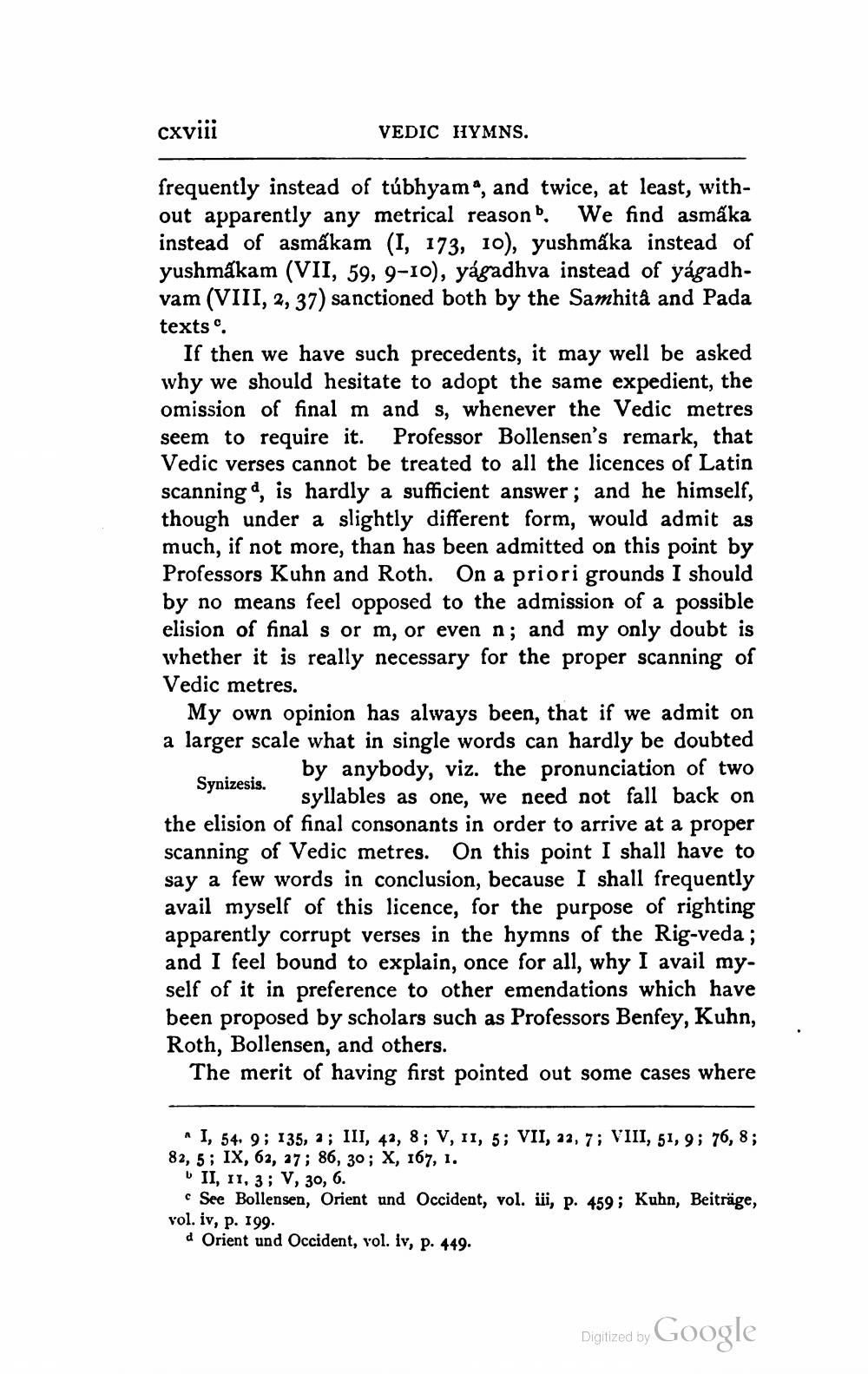________________
cxviii
VEDIC HYMNS.
frequently instead of túbhyam“, and twice, at least, without apparently any metrical reason. We find asmáka instead of asmákam (I, 173, 10), yushmáka instead of yushmäkam (VII, 59, 9-10), yágadhva instead of yágadhvam (VIII, 2, 37) sanctioned both by the Samhita and Pada texts.
If then we have such precedents, it may well be asked why we should hesitate to adopt the same expedient, the omission of final m and s, whenever the Vedic metres seem to require it. Professor Bollensen's remark, that Vedic verses cannot be treated to all the licences of Latin scanning d, is hardly a sufficient answer; and he himself, though under a slightly different form, would admit as much, if not more, than has been admitted on this point by Professors Kuhn and Roth. On a priori grounds I should by no means feel opposed to the admission of a possible elision of final s or m, or even n; and my only doubt is whether it is really necessary for the proper scanning of Vedic metres.
My own opinion has always been, that if we admit on a larger scale what in single words can hardly be doubted Synizesis.
by anybody, viz. the pronunciation of two
* syllables as one, we need not fall back on the elision of final consonants in order to arrive at a proper scanning of Vedic metres. On this point I shall have to say a few words in conclusion, because I shall frequently avail myself of this licence, for the purpose of righting apparently corrupt verses in the hymns of the Rig-veda ; and I feel bound to explain, once for all, why I avail myself of it in preference to other emendations which have been proposed by scholars such as Professors Benfey, Kuhn, Roth, Bollensen, and others.
The merit of having first pointed out some cases where
- I, 54; 9; 135, 2 ; III, 42, 8; V, 11, 5; VII, 32, 7; VIII, 51, 9; 76, 8; 82, 5; IX, 62, 27; 86, 30; X, 167, 1.
II, 11, 3 ; V, 30, 6.
See Bollensen, Orient and Occident, vol. iii, p. 459 ; Kuhn, Beiträge, vol. iv, p. 199.
d Orient und Occident, vol. iv, p. 449.
Digized by Google




